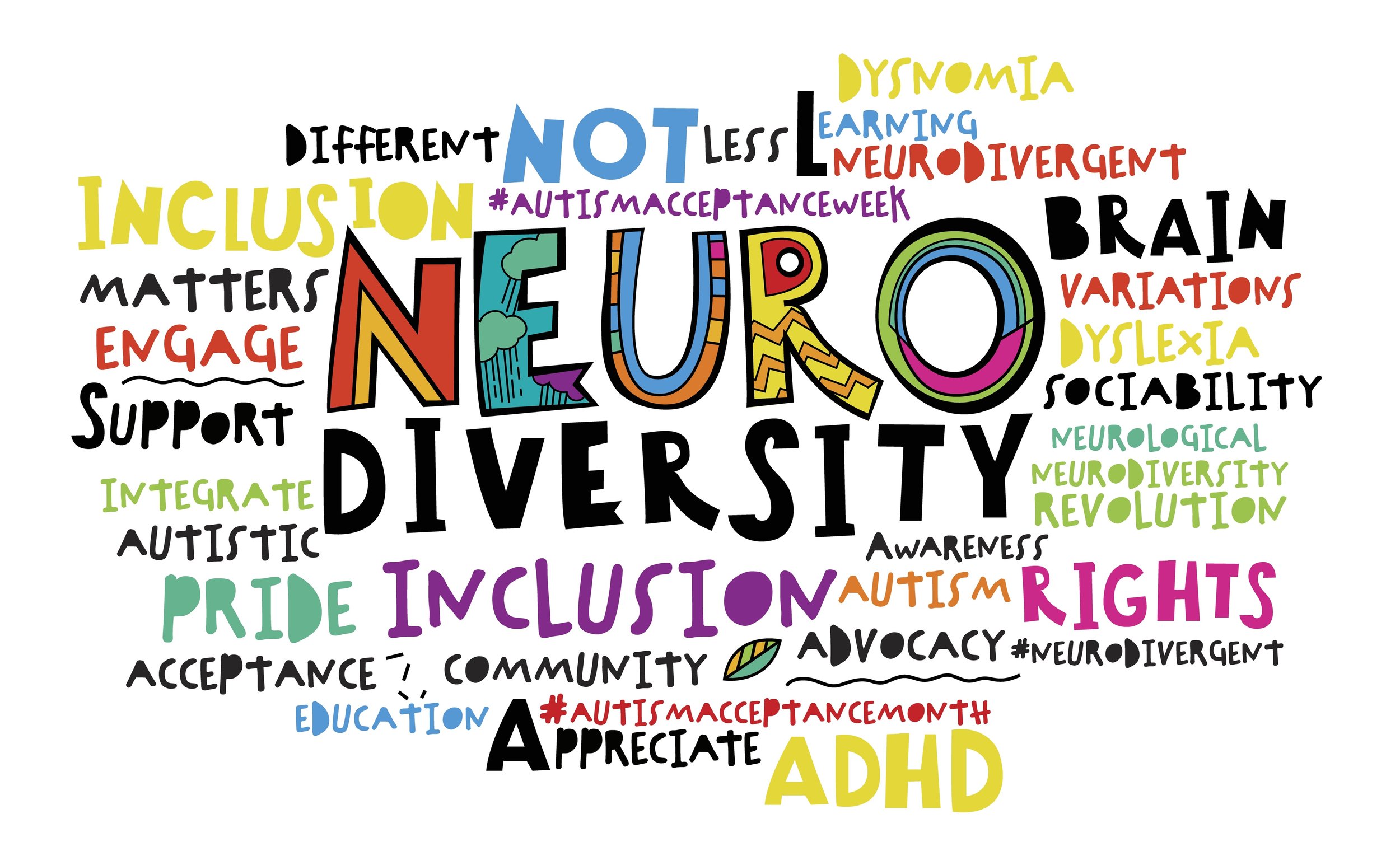What is Neurodiversity?
Mendo LEAP is a proud advocate for neurodiversity
Neurodiversity is the diversity of human minds and the infinite variations in neurocognitive functioning within our species. Humanity is neurodiverse, just as humanity is racially, ethnically, and culturally diverse. When an individual diverges from the dominant societal standards of “normal” neurocognitive functioning, they don’t “have neurodiversity,” they are neurodivergent.
Mendo LEAP is committed to fostering unity and embracing diversity. Through its facilities, Mendo LEAP creates opportunities for inclusivity, connection, acceptance, and love. By maintaining an open environment for the public, specialists, and organizations, LEAP advocates for collaborative efforts centered on empathy and comprehension. Our core belief is in the inherent worth of every neurotype, embracing diverse thinking patterns and communication styles.
What different neurotypes are there?
Some different neurotypes include but are not limited to:
Autism spectrum disorder (this includes what was once known as Asperger’s syndrome)
Attention-deficit hyperactivity disorder (ADHD)
Auditory processing disorder
DiGeorge syndrome
Down syndrome
Dyscalculia (difficulty with math)
Dysgraphia (difficulty with writing)
Dyslexia (difficulty with reading)
Dyspraxia (difficulty with coordination)
Dysphemia (speech disorder that cause irregular speech patterns)
Intellectual disabilities
Bipolar disorder
Major depressive disorder
Obsessive-compulsive disorder
Other mental health conditions
Sensory processing disorders
Social anxiety (a specific type of anxiety disorder)
Tourette’s syndrome
Williams syndrome
Synesthesia
Given the variety of unique diagnoses, each of which can be on its own spectrum of severity, neurodiverse people are a unique population with their own varied needs, wants, and lived experiences. Given the proper support early in life, many neurodiverse people live fulfilling, independent lives and make unique and valuable contributions to our world.
Despite growing awareness and acceptance around neurodiversity, there is still a lot of work to be done to make the world a more equal and accepting place for neurodiverse individuals. For instance, according to a study published by the National Library of Medicine, adults with ADHD are more likely to be unemployed than their neurotypical counterparts. Those who do find gainful employment make up to $10,000 less per year than their neurotypical counterparts.
What Makes Neurodivergent Individuals Unique?
Positive Psychology sourced this excellent list of characteristics of neurodivergent individuals:
Sensory processing differences, including high or low sensitivity to light, sound, smell, taste, and texture.
Emotional regulation differences
Planning and organizational differences
Information-processing differences
Working memory differences
Hyperfixations and/or special interests
Rejection sensitivity dysphoria (sensitivity to potentially negative interpersonal cues such as sudden changes in arrangements or plans, delayed replies to messages, and constructive criticism.)
Social anxiety is often due to differences in communication styles.
Masking involves imitating neurotypical behavior patterns to be socially acceptable and included.
Overwhelm can be a consequence of struggling to cope with all the above.
Many neurodiverse people struggle with the issue of “masking”, or trying to hide their neurodiversity around neurotypical people. This can make it much harder for neurodivergent people to manage in the workplace, though modern DEI initiatives and education are helping to mitigate these issues. Having proactive, holistic workplace accommodations in place ensure that everyone–neurodivergent AND neurotypical–feel comfortable and safe at work.
Would you like to learn more about neurodiversity? Our monthly Neurodiversity Night is held on the last Saturday of each month! Our next one will be Saturday, February 22nd. We hope you can join us!


